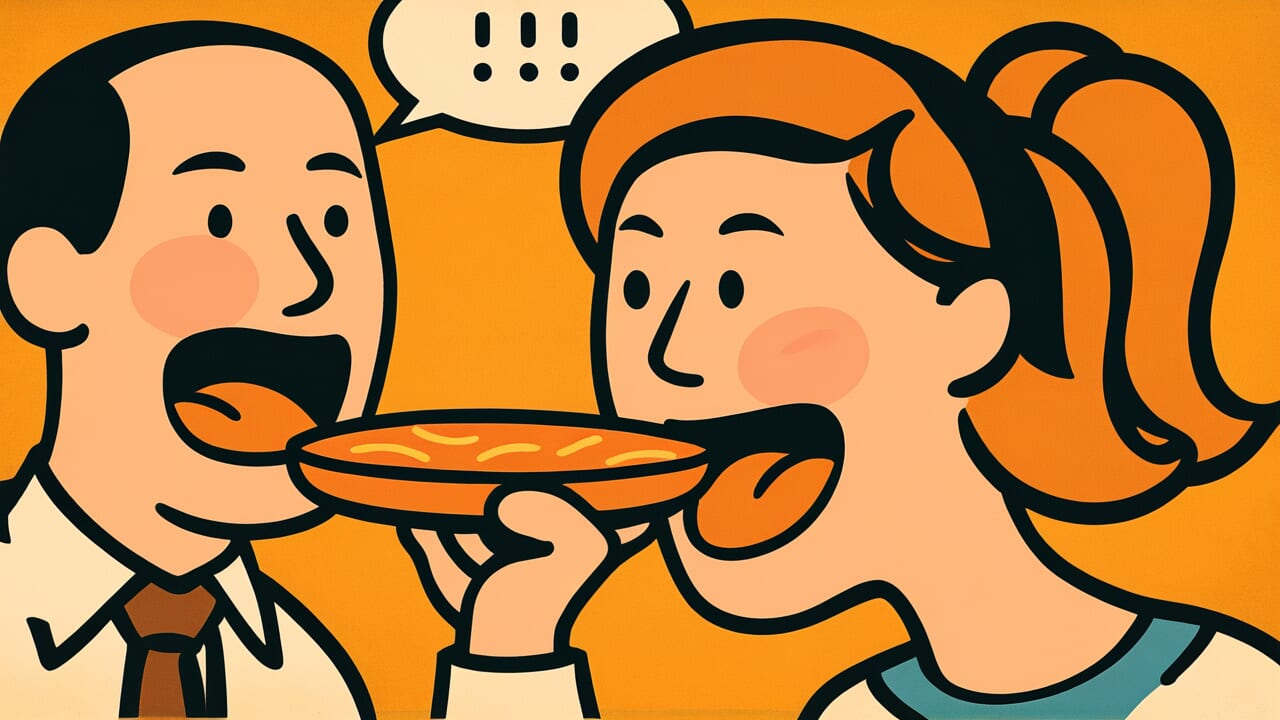How to Read “One mouth cannot eat, but two mouths can eat”
Hitori guchi wa kuenu ga futari guchi wa kueru
Meaning of “One mouth cannot eat, but two mouths can eat”
This proverb means that while living alone is difficult, two people can survive by working together. When you live alone, you must earn all living expenses by yourself. It’s also hard to handle unexpected situations like illness or job loss.
But when two people join forces, they can combine their incomes. They can share household chores and living burdens. When one person faces difficulties, the other can provide support.
This proverb is used when discussing marriage or living together. It’s also used to explain the importance of cooperation. It expresses more than just economic efficiency.
It shows the sense of security that comes from supporting each other. It also shows the strength to overcome difficulties together. Even today, shared living is more economically efficient than living alone.
This proverb continues to hold meaning. It clearly conveys the value of cooperation.
Origin and Etymology
The exact first appearance of this proverb in literature is unclear. However, it’s believed to have emerged from common people’s lives during the Edo period.
Let’s focus on the word “mouth.” In Japanese, “mouth” has long been used as a unit to count people. Just as “a family of three” is expressed as “three mouths,” it indicated the number of people to feed.
This expression strongly reflects an era when eating was central to life.
At first, this saying sounds contradictory. But it contains deep practical wisdom. Living alone means no one nurses you when you’re sick. If you can’t work, your income stops completely.
Also, buying food for one person is expensive per unit. You must bear housing costs alone.
But with two people, one can work when the other is sick. Buying food in bulk becomes cheaper. Housing costs can be shared.
Most importantly, having emotional support makes it easier to overcome difficult times.
This saying was often used to encourage marriage and family formation. Precisely because times were hard, common people knew firsthand the importance of helping each other.
Usage Examples
- Living alone was tough, but after marriage, “One mouth cannot eat, but two mouths can eat” really made life easier
- I wanted independence when young, but now I understand the meaning of “One mouth cannot eat, but two mouths can eat”
Universal Wisdom
This proverb speaks to the truth that humans are fundamentally “beings who support each other.” We are weak alone and have limits. But when we acknowledge that weakness and join hands with someone, things impossible alone become possible.
What’s interesting is that this proverb contains insight beyond mere economic calculation. Living together certainly makes expenses more efficient. But what matters more is the relationship itself where you can support each other during difficulties.
People’s spirits break in isolation. But just having someone nearby gives us strength to overcome the same difficulties.
This proverb also contains the message “you don’t have to be perfect.” Even if you’re so imperfect that you can’t eat alone, two people can survive. In other words, it teaches that complementing each other’s imperfections is the essence of human relationships.
Our ancestors understood that human strength lies not in isolated individual ability but in connections. This wisdom touches the core of human existence. No matter how times change, it never fades.
When AI Hears This
When alone, the energy used to obtain food roughly balances with the results obtained. But with two people, suddenly outcomes exceeding input energy emerge. This is exactly “entropy reduction in an open system” in thermodynamics.
Think about it concretely. When catching fish alone, time making nets, searching for fish, and capturing them all concentrate on one person. This state is “energy dispersed and disordered.”
But with two people, one can specialize in net-making while the other specializes in observing fishing grounds. This is “emergence of order through role division.” With the same energy input, results more than double. Truly 1+1 becomes 3 or even 4.
More fascinating is that this cooperative system creates “negative feedback.” Surplus food obtained by two people creates time for tool improvement. Improved tools increase surplus further.
In a closed system, energy inevitably disperses and becomes unusable. But human cooperation creates an open system that continuously draws energy from the external environment.
Life’s evolution from single cells to multicellular organisms follows the same principle. So does corporate division of labor. Cooperation doesn’t defy physical laws.
Rather, it uses the loophole of open systems to build local order within the flow of increasing entropy. It’s the only countermeasure the universe permits.
Lessons for Today
This proverb teaches modern people that independence and cooperation don’t contradict each other. In modern society, “being able to do everything alone” is often seen as strength. But true strength lies in being able to ask for help when needed and joining forces with others.
Before exhausting yourself by trying too hard alone, consider building cooperative relationships with trustworthy people. They might be family, friends, partners, or work colleagues.
What matters is having relationships where you acknowledge and complement each other’s weaknesses.
This proverb also contains the gentle message “you don’t have to be perfect.” Even if you’re insufficient alone, you’ll be fine with someone. Your imperfection, combined with someone else’s imperfection, approaches completeness.
Enduring loneliness is not a virtue. Connecting with people and supporting each other is truly human living.
Starting today, why not have the courage to join hands with someone?



Comments